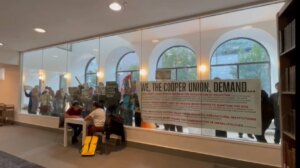"Corporate media outlets are running salacious headlines that Pope Francis is now allowing “priests to bless same-sex relationships.” The implication from the media is that the Catholic Church has made a “radical” reversal on its stance that marriage is between one man and one woman. This is factually untrue.
"On Monday, the Vatican’s Dicastery for the Doctrine of the Faith released a “Declaration ‘Fiducia Supplicans’ On the Pastoral Meaning of Blessings.” In the declaration, the Vatican first reaffirms that marriage is the “exclusive, stable, and indissoluble union between a man and a woman, naturally open to the generation of children.”
"The document also establishes that contrary to media reports, liturgical blessings related to formal Church sacraments can never endorse same-sex unions, which the Catholic Church does not recognize. “[T]he Church does not have the power to confer its liturgical blessing when that would somehow offer a form of moral legitimacy to a union that presumes to be a marriage or to an extra-marital sexual practice,” reads the declaration.
"The document does say that individuals, including “same-sex couples,” may receive “spontaneous,” “informal” blessings related to overcoming human sin. “[O]ne should not prevent or prohibit the Church’s closeness to people in every situation in which they might seek God’s help through a simple blessing,” states the document.
"This, of course, is not new information. Anyone — irrespective of the types of sin they happen to struggle with — has always been able to receive an informal blessing from a Catholic priest. In other words, the document is a pointless reiteration of already established Church teachings. Indeed, the declaration is being grotesquely misrepresented by the corporate media and leftist Catholics who wish the document had been a reversal of Church doctrine, which, again, it was not.
"While the document is theologically sound, many Catholics are calling it a “pastoral nightmare.” Ulrich L. Lehner, a Catholic historian who teaches in the University of Notre Dame theology department, warns that the document’s “imprecise language invites misunderstanding and will sow confusion.” . . .




%20(1).jpg)

.webp)







